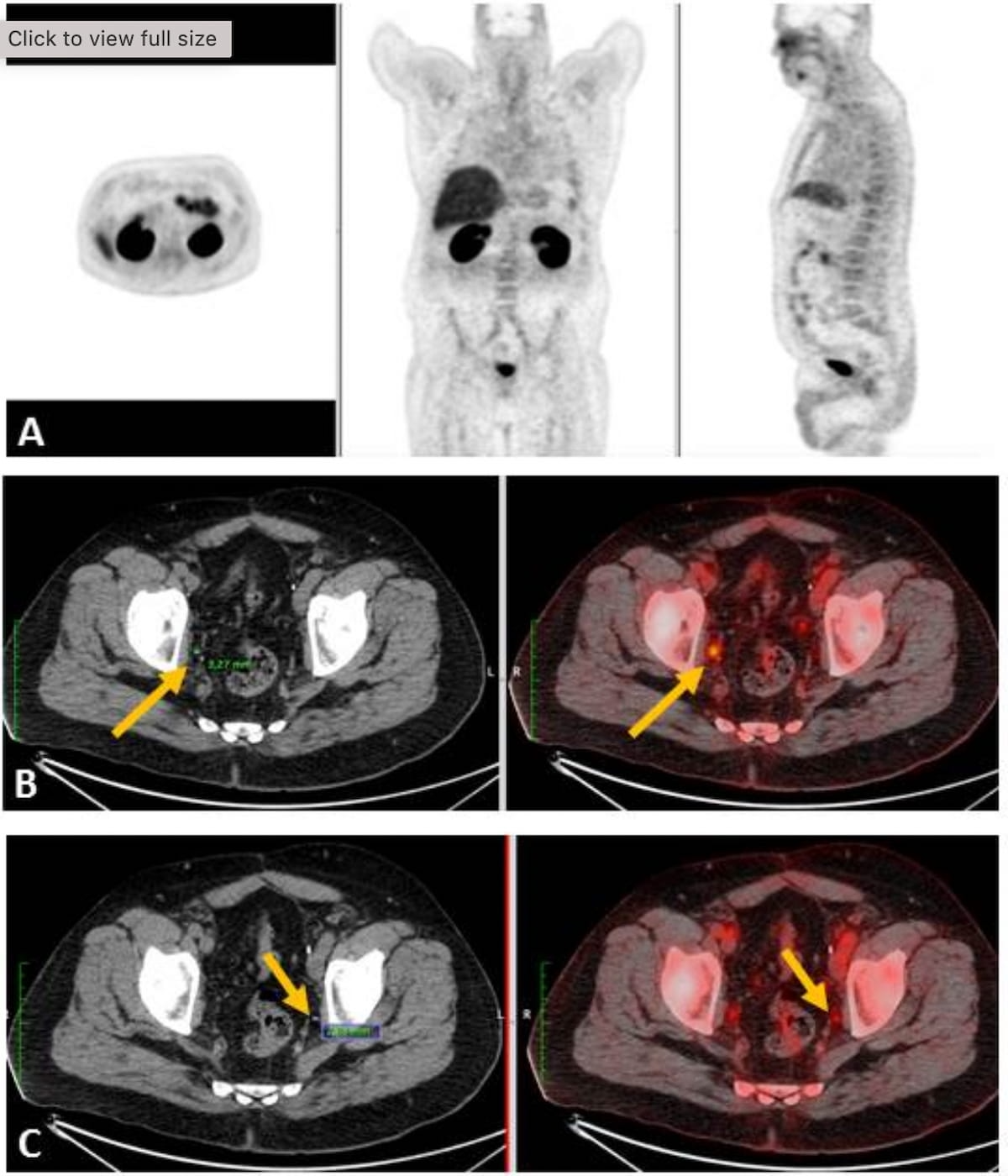In addition to demonstrating nearly equivalent efficacy for the initial staging and biochemical recurrence of prostate cancer, the positron emission tomography (PET) radiotracer 18F-PSMA-1007 may improve detection of metastatic lesions, even in patients with low prostate-specific antigen (PSA) levels.
In a retrospective study presented recently at the Society for Nuclear Medicine and Molecular Imaging (SNMMI) conference, researchers assessed the use of 18F-PSMA-1007 in 160 patients with prostate cancer. The cohort was comprised of 31 patients for initial staging of prostate cancer and 129 patients for biochemical recurrence/restaging, according to the study.
The researchers found that 18F-PSMA-1007 was associated with a 72 percent positivity rate for abnormal findings in the overall cohort (115/160) with a 74 percent positivity rate at initial staging and a 71 percent positivity rate for patients with biochemical recurrence of prostate cancer.
In the primary staging group, the researchers noted that 18F-PSMA-1007 detected lymph node metastasis in 32 percent of patients and bone metastasis in 23 percent of patients.
“Notably, therapy planning was modified in 42 percent of patients,” pointed out study co-author Gerardo dos Santos, M.D., who is affiliated with the Hospital de Clinicas and Centro Uruguayo de Imagenologia Molecular (CUDIM) in Montevideo, Uruguay, and colleagues.

Here one can see micrometastases in right and left external iliac lymph nodes in axial PET/CT images (B and C) obtained with the use of 18F-PSMA-1007 in a 61-year-old patient with PSA relapse. Previous maximum intensity projection (MIP) images (A) revealed no abnormal findings. (Images courtesy of the Society for Nuclear Medicine and Molecular Imaging.)
(Editor’s note: For additional content from the SNMMI conference, visit https://www.diagnosticimaging.com/conferences/snmmi .)
For patients in the biochemical recurrence/restaging group, the 18F-PSMA-1007 agent detected prostate cancer recurrence and/or metastasis in 77 percent of the patients. The researchers added that even in patients with a PSA level < 1 ng/ml, 18F-PSMA-1007 had a 51 percent detection rate for prostate tumor activity and a 46 percent detection rate for extra-prostate metastases.
“(The agent’s) detection ability is not affected by PSA levels, which is an advantage in the range of early biochemical relapse,” noted dos Santos and colleagues.
Reference
1. Dos Santos G, Cordero I, Suanes K, et al. Diagnostic performance of novel 18F-PSMA-1007 PET/CT on the assessment of patients with prostate cancer in different clinical scenarios (diagnosis and follow-up): national experience in Cudim in 160 patients. Poster presented at the Society for Nuclear Medicine and Molecular Imaging (SNMMI) 2023 Annual Meeting, June 24-27, 2023, Chicago. Available at: https://am.snmmi.org/iMIS/SNMMI-AM . Accessed August 1, 2023.